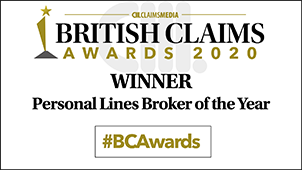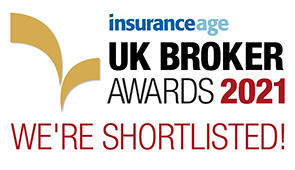Storm Kathleen will cross Northern Ireland, southern Scotland and western parts of England and Wales on Saturday 6th April 2024, seeing a yellow severe weather warning in force from 08:00 to 22:00 on Saturday.
The Met Office has forecasted that Storm Kathleen will cross the UK from 8am until 10pm on Saturday for parts of western Britain and Northern Ireland.
A severe yellow weather warning is now in place for Saturday 6th April, gusts of 50-60 mph are expected quite widely within the warning area, with the possibility of 70 mph gusts in exposed coastal locations, especially in eastern Northern Ireland. Overnight a band of heavy rain will move northwards across the UK bringing a temporary snow risk for parts of Scotland.
Deputy Chief Meteorologist Christoph Almond said: “Gusts of 50 mph are expected quite widely on Saturday, while some exposed spots, particularly on the coast, will see 60 to 70 mph gusts with large waves also likely.”
As this area of low pressure moves north-eastwards, it will be drawing up unseasonably warm air from Iberia for a time. This warm air will see temperatures rise across the UK, causing some areas to see values above 20°C for the first time this year. The locations likely to see the highest temperatures will be in parts of East Anglia and Southeast England where 21°C or 22°C is not out of the question briefly on Saturday.
We know that storms can be unpredictable and potentially devastating, however, Funeral Directors can take proactive steps to minimise damage and ensure the safety of their premises and team. To help you prepare for the storm and flooding, the SEIB Funeral Directors Insurance team is advising the following steps and precautions so you can safeguard your business.
Preparing for a storm
Stay Informed: Sign up for severe weather warnings on metoffice.gov.uk or stay updated with local weather reports via TV or radio stations.
Regular Maintenance: Ensure that your property is well-maintained throughout the year.
Tree Management: Trim back any bushes or trees around the premises that might pose a threat to windows during high winds.
Secure Doors and Windows: Close and securely fasten doors and windows, particularly those on the windward side of the building, and especially large doors.
Securing Loose Objects: Secure loose objects such as ladders, benches, or any items that could become projectiles during a storm.
During a storm
Safety First: Do not attempt to visit your business to repair any damage while the storm is in progress.
Sheltered Access: If you must enter or exit the premises during a storm, use doors on the sheltered side and remember to close them securely behind you.
After the storm
Beware of Hazards: Exercise caution around electrical and telephone cables that have been blown down or are still hanging.
Watch for Weak Structures: Avoid walking too close to walls, buildings, and trees, as they may have been weakened during the storm.
Professional Help: Contact reputable contractors to secure and remove fallen trees and damaged walls.
Preparing for flood
If you know that you are in a flood-risk area, there are several ways you can prepare for flooding:
Work With Your Community
Visit the National Flood Forum website for useful information including a directory of flood-related products. They work with flood action groups to support communities and households who are at risk of flooding.
Store essential flood equipment
It’s good to keep essentials handy at all times. Keep buckets, sandbags, spades, wellies, bottled water, gloves and other protective clothing somewhere accessible. These will all be useful if flood waters do start to rise close to your property.
Have a contingency plan
A contingency plan should outline what you need to do in the event of a major incident such as a flood. Keep emergency telephone numbers and your insurance documents to hand to let essential people know immediately.
Flood-proofing your property
There are several ways you can protect your property against flooding:
- Flood barriers are boards that can be installed across doorways and windows ahead of the arrival of flood water. These usually slide into a frame pre-attached to the building structure to provide a watertight seal.
- Sandbags
- Used in conjunction with plastic sheeting to create a flood barrier.
- Airbrick covers
- One of the first points of entry of floodwater into a property is via airbrick vents. A plastic cover can be clipped to framework surrounding airbricks to prevent the entry of water
- Non-return valves to drainage systems to prevent backflow of foul water into the property
- Drainage gullies
- Installed around your property designed to capture surface water and divert it directly to drains
- Landscaping
This can be used to divert surface water away from a building. Care should be taken to ensure water is not diverted onto neighbouring property where it could cause damage
What to do during a flood
Safety comes first, think about evacuation before it is too late to move.
If flood water is about to enter your property turn off the gas, electricity and water but never touch sources of electricity when there is standing flood water.
Move valuable possessions, sentimental and irreplaceable items to safety, if you can move them to upper floors.
Take as much furniture as you can to the upper floors, if you can’t move them lift them onto blocks or bricks to minimise the damage.
Think about moving cars to higher ground if you know there is a threat of flooding.
Remember, if you have a basement that will be the first area to flood. Flash flooding, especially from a build-up of surface water is a real threat to properties with basement rooms. The water can pour in off the pavement quickly, inundating the room.
Insurance assistance
If your business premises sustains damage, don't hesitate to reach out for assistance. The quicker you report a possible claim, the smoother the process will be. Contact our team on 01708 850000 to report a claim.
By following these storm safety precautions, your funeral business can be better prepared to withstand the unpredictable forces of nature and protect both its structure and its community.
About SEIB
SEIB have been providing Funeral Director Insurance and Funeral Car Insurance for over 40 years. For more information on this, or for a quote, please call 01708 850000 or email info@seib.co.uk.



